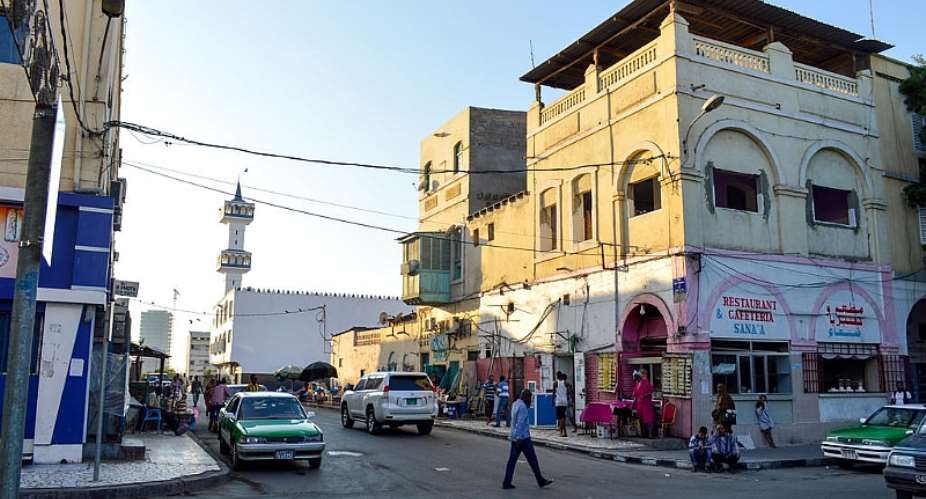Djibouti has reported a seven-fold increase in Covid-19 cases over a two-week period, according to Africa Centres for Disease Control and Prevention (CDC). With 98.6 cases per 100,000 people, the country has the highest prevalence on the African continent, attributed to residents ignoring the measures put in place by the government.
"The confinement has not been respected by everyone, and unfortunately many of our compatriots still take this disease lightly," said President Ismail Omar Guelleh in a televised appearance this week.
"You continue to circulate, not observing minimum distances, not isolating yourselves, and spreading the disease," he added.
"The epidemic is getting worse," conceded the health ministry last week.
Although Djibouti is a small country, some 999 people have contracted coronavirus and two have died.
But Guelleh, a president with no term limits, has come under fire for his handling of the pandemic.
In Balbala, two Egyptian doctors returned to Djibouti to work at the Al-Rahma hospital, and then those with Covid-19 were sent to a hospital in the south of the country, which infected more people.
Others felt that the lockdown mandate came without warning on 23 March. Only those working in essential industries were allowed outside. Public transport was banned, schools and house of worship closed and only necessary shops allowed to remain open.
- France is a 'respectful' partner, Macron boasts during Djibouti visit
- IOM calls for halt of Ethiopia repatriations amid Covid-19 concerns
'Even tougher measures'
The strategic coastal Horn of Africa country hosts US, French, and Chinese military bases in addition to its one million population. The country has conducted 11,000 tests so far.
People still continue to walk and shop at crowded markets in Djibouti, also the name of the capital city, and few are wearing masks, according to Agence France Presse.
In normal times, Guelleh has ruled with an iron fist, trying to crush opposition to his rule, quashing freedom of the press and civil society. And he appears to be applying the same policy to the coronavirus crisis: "If behaviour doesn't change I will take even tougher measures," he said.
But the average Djiboutian makes less than 3 euros a day and nearly half the country is unemployed. Those who live hand-to mouth will find it tough to ride out the extended lockdown until 28 April.
The president created an emergency fund this month to feed the poor worth 5.2 million euros, and thousands of families have reportedly been fed. But the distribution of aid is reportedly based on favouritism.
Some are suspicious of the government edict to close mosques, especially during Ramadan, which started on Thursday.





 Akufo-Addo commissions Phase II of Kaleo solar power plant
Akufo-Addo commissions Phase II of Kaleo solar power plant
 NDC panics over Bawumia’s visit to Pope Francis
NDC panics over Bawumia’s visit to Pope Francis
 EC blasts Mahama over “false” claims on recruitment of Returning Officers
EC blasts Mahama over “false” claims on recruitment of Returning Officers
 Lands Minister gives ultimatum to Future Global Resources to revamp Prestea/Bogo...
Lands Minister gives ultimatum to Future Global Resources to revamp Prestea/Bogo...
 Wa Naa appeals to Akufo-Addo to audit state lands in Wa
Wa Naa appeals to Akufo-Addo to audit state lands in Wa
 Prof Opoku-Agyemang misunderstood Bawumia’s ‘driver mate’ analogy – Miracles Abo...
Prof Opoku-Agyemang misunderstood Bawumia’s ‘driver mate’ analogy – Miracles Abo...
 EU confident Ghana will not sign Anti-LGBTQI Bill
EU confident Ghana will not sign Anti-LGBTQI Bill
 Suspend implementation of Planting for Food and Jobs for 2024 - Stakeholders
Suspend implementation of Planting for Food and Jobs for 2024 - Stakeholders
 Tema West Municipal Assembly gets Ghana's First Female Aircraft Marshaller as ne...
Tema West Municipal Assembly gets Ghana's First Female Aircraft Marshaller as ne...
 Dumsor is affecting us double, release timetable – Disability Federation to ECG
Dumsor is affecting us double, release timetable – Disability Federation to ECG
